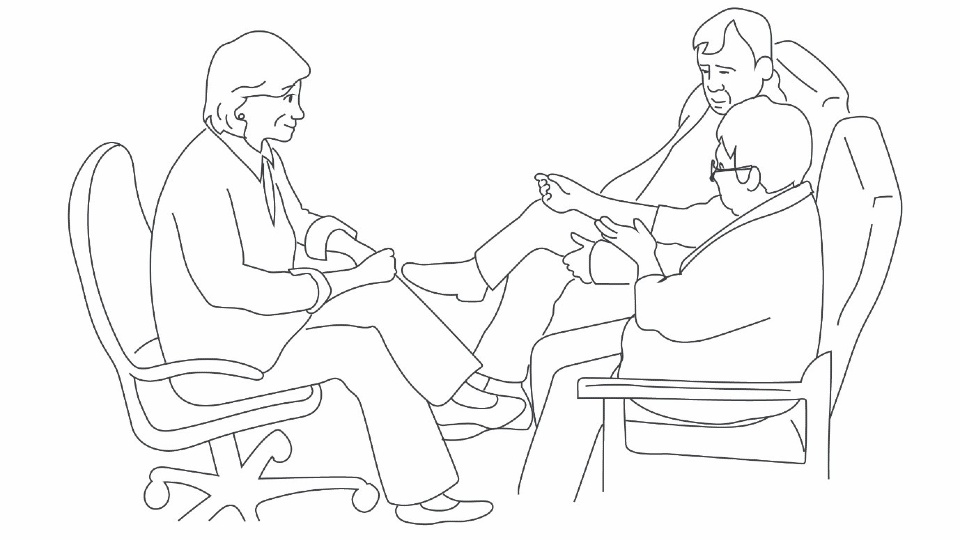The RealTalk resources, developed at Loughborough University, will now be managed and disseminated by Treetops Hospice, which provides end-of-life care and bereavement support in Derby, Derbyshire and Nottinghamshire.
Project lead Dr Marco Pino says the licensing will “ensure RealTalk’s sustainability in the long term” and “ultimately, make a difference to the care of patients and their families”.
RealTalk, established in 2015, originates from research by Professor Ruth Parry and the VERDIS team that identified a need for a novel, evidence-based approach to the design of communication training resources in healthcare.
RealTalk comprises a series of training modules that incorporate clips from video recordings of real-life consultations and evidence from cutting-edge observational communication science. A range of topics are covered including discussing prognosis in the context of palliative and end-of-life care, and bereavement support.
Traditional training approaches often rely heavily upon role play as a learning technique, and these scenarios can sometimes lack authenticity.
RealTalk’s direct evidence base enhances the teaching of the complexities and skills entailed in healthcare practitioners’ real-life interactions with patients and their family members.
Almost 300 trainers have registered as RealTalk users, and feedback gathered by the research team over the years found the resources make a positive difference to healthcare workers’ ability and confidence in facilitating sensitive but important conversations.
For several years, RealTalk has been developed and managed at Loughborough University, thanks to funding from the Health Foundation, National Institute for Health and Care Research, and the Loughborough University Enterprise Projects Group.
With funding coming to an end, Dr Pino, Professor Parry, project manager Becky Whittaker, and team have worked to license RealTalk to Treetops Hospice.
“We are very excited about this extraordinary opportunity”, commented Dr Pino, “It is not uncommon for initiatives like RealTalk to dry up when funding comes to an end. The licensing will ensure RealTalk’s sustainability in the long term.
“We designed RealTalk to help increase healthcare and social-care practitioners’ skills and confidence in handling very important, sensitive conversations with patients and their companions.
“Timely conversations are crucial because they offer patients opportunities to exercise choice in terms of the care they wish to receive at the end of their life.
“Our hope is that the further spread and embedding of RealTalk with Treetops Hospice will help reshape ways of thinking about and designing communication skills training and, ultimately, make a difference to the care of patients and their families.”
Though Treetops Hospice will be responsible for the operational management of RealTalk, Loughborough University academics will still be involved in the project and will work to expand its underpinning evidence, generate new training modules, and gather evidence of the impact of the RealTalk resources.
Sharan Harris-Christensen, Manager of the Virtual Education Centre in Palliative and End of Life Care (PEOLC) and Communication Skills for Royal Derby Hospital and Treetops Hospice, added: “We are very excited that Loughborough University has chosen Treetops Hospice to host the RealTalk resources and deliver the operational aspects for the direct evidence base of RealTalk.
“This is the next step in widening the dissemination of talk as action in clinical practice, directly impacting on the progression of tender conversations in advance care planning and end-of-life care from conversation analysis research.”
Practitioners looking for more information on RealTalk and wishing to check their eligibility to become a RealTalk facilitator can do so on the dedicated website.
Further information on Dr Pino’s research can be found on his Research and Innovation profile.

